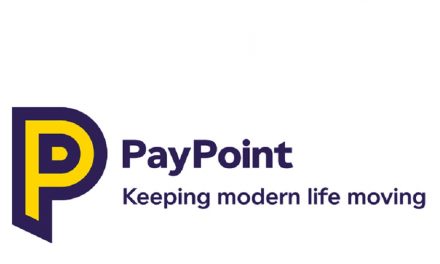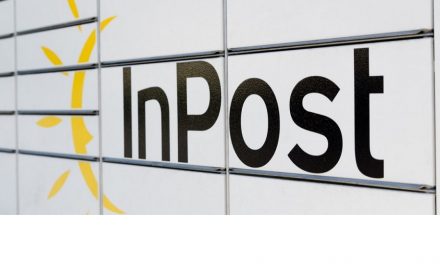
Yodel: Changing the delivery model for an Internet age
One of the UK’s largest parcel delivery companies is set to change its business model to cope with the major changes in the market. James Cartledge spoke with CEO Jonathan Smith about the changes. Britain’s second largest parcel delivery company after Royal Mail announced last week moves to change its service offering, in the light of dramatically growing e-commerce business and a huge increase in the scale of the peak in volumes around the Christmas period.
Formerly known as the Home Delivery Network, Hatfield-based Yodel accounts for around a 25% market share of the home delivery market in the UK, delivering about 170m parcels a year, with an annual turnover in the region of GBP 650m.
The company came into particular prominence as it took over the domestic B2B and B2C operations of DHL Express in the UK in March 2010, since when the company has been working to integrate the two networks, with plans to close 45 depots where operations overlapped.
Yodel has been recording losing tens of millions a year since the takeover of the DHL operations, and has also faced some public criticism of its service levels recently, and found itself the subject of national newspaper coverage in the run-up to Christmas 2011, although it insisted at the time that only a small fraction of its deliveries had been late.
The company is now negotiating with its customers in order to bring in the planned changes in its service offering. These are to include price increases, but also a promise to improve service levels.
Jonathan Smith became the managing director of DHL Domestic in 2008, but following its acquisition by Home Delivery Network in March 2010, he was appointed CEO, with the combined businesses rebranded as Yodel.
Speaking to Post&Parcel, Smith confirmed his company was looking to continue investing “tens of millions” of pounds into its business as part of the transformation of its business model, and said a key theme for that investment was to strengthen its human resources in particular…

Yodel CEO Jonathan Smith
Do your customers have to accept with the state of the UK parcel market at the moment, that prices will inevitably to go up across the board?
It’s difficult to say whether they’ll accept it or not. We have to do this – we have to change our model to reflect the change that’s happening in the market we now serve.
Three or four years ago, we had a much stronger B2B market, mainly to the retail high street. We deliver to around about 25% less high street stores than we would have done two and a half years ago. That’s changed, and clearly a lot of that work has moved online, which comes with a very different characteristics – one of which is that the peak effect, or how different Christmas is to the rest of the year, is far more extreme.
What kind of growth are you seeing in volumes and the Christmas peak?
The year 2010 was unusual because we had really bad snow conditions, but last year certainly we saw in excess of 20% growth over 2009 levels.
When online retail started, you would have said the peak would be one and a half times non-peak volumes. We now have many clients who are five or six times busier in December, and we have one client whose volume is 11 times greater during Christmas than they are during the year.
I believe that we now responsibly need to look into capacity coming into the next few years. I don’t see this growth stopping and I don’t see this pattern towards the extremes changing.
Would you say the parcel industry has become a constraint on growth in the e-commerce business?
We have 25% market share of deliveries to the home in the UK, and I believe we have a responsibility to say now we’re seeing a definite shift in the pattern. I don’t think it’s about volumes alone. It’s actually the characteristics of online change that is the issue, and we now think that we have got to adapt to allow them to grow further.
Seasonality is only one aspect. We’ve also seen a massive difference in the days of the week. With home shopping, you may get a 30% difference in volume between a Monday and a Thursday, for example.
The other aspect that did surprise us, but we’ve certainly learned along the way, is that if the retailer wants to launch a promotion, they can do it within an hour. They only have to change their website, of course – so we can be hit by very hefty volumes at very short notice.
Do e-commerce retailers or consumers need to change their approach to Christmas?
No. I think we want to offer a robust service over Christmas, and I think people should get out orders late, I think that’s the joy of the online and that’s how people shop. But we need to be sufficiently invested to be able to do that.
It’s not about curtailing online, it’s about recognising how shopping habits have changed. Obviously that’s affected us.
How are you investing to improve the situation at Yodel?
The last couple of years since Yodel came into existence, most of our investment has been in technology and infrastructure. I believe now we need to start investing more heavily in human resource, in terms of bringing people in, and certainly earlier than last year to deal with the peak.
We have two networks at the moment – we have an employed network, and we have a courier network of self-employed couriers, which we call Neighbourhood Couriers. They are suitable for the home delivery market because they tend to live locally, and they will do three delivery attempts as standard. Rather than have a call centre, they’ll give out their own mobile number, you contact them personally rather than come through a central point. They are very much part of our growth plans for home delivery.
There’s a feeling among some members of the public that you shouldn’t be shutting depots if you’re finding it difficult to keep up with the growth in online parcels.
I can understand the point, but I think it’s slightly misguided. We’re shutting locations where we have two in the same geographic area, and in some instances we’re opening a completely different one – we’re opening a third, bigger facility. So that’s not constraining capacity, we’re making sure we have enough capacity at service centre level.
But actually that’s not the real capacity challenge we have – the capacity challenge is how much we need at Christmas, as against what we have to carry the rest of the year.
How long will it take you to implement your planned changes?
We will absolutely change it for this Christmas – after the summer, it will change this year.
And for retailers facing higher prices, what improvements can they expect in return?
Apart from the fact we intend to bring resource in earlier leading up to Christmas, so there’s a better chance to be trained and so that we have more people, we’re going to offer an improved level of service commitment – what we are prepared to put our name to, in terms of performance.
We are going to offer text and email as standard to everybody – that’s notification of a parcel arriving. We’re going to offer an a.m./p.m. advice as standard, so we tell you which part of the day to expect your delivery.
We’re going to go to a standard six-day delivery week, away from the five plus a premium for a Saturday, and in December we’re committing to go to a seven-day standard week. Now we’re going to see a Saturday exactly the same as the Wednesday or Thursday.
You’re also looking to expand your network of collection points at local convenience stores – the CollectPlus joint venture with PayPoint. Has that proven to be a successful alternative for consumer parcel collections?
Very much so. It’s been phenomenally successful for returns – particularly in fashion.
The problem in getting a garment or a shoe which is the wrong size is it the challenge of how to get it back to the provider. Our CollectPlus stores are open seven days a week, seven ’til seven, so it’s been phenomenally successful at returns. And it’s now starting to get real leverage from people collecting packages from CollectPlus stores.
Certainly there’s going to be extreme growth in the network over the next three years. (Editor’s note: Yodel said last week its CollectPlus network could grow from the current 4,700 outlets to 8,000 in the next three years).
We’re now very close to the majority of the population. A phrase I like is that we’re within ‘slipper distance’ – we’re just a shuffle down the road for most of the population now with CollectPlus.
In the light of the changes to the parcel market and the significant changes being made in your own operations, how confident are you in the future of Yodel, and whether these plans will get you back to profitability?
I am confident, I’ve always been confident, but I wouldn’t be if we didn’t make tough decisions and keep things changing.
I think the thing we’ve done very quickly is analyse, particularly last Christmas, to see what needs to be done, and not to leave it any further. On the back of this, I believe we have the ability to make the changes needed to deal with these trends.
Jonathan Smith began his career as a management trainee for retailer WH Smith in 1977, and has subsequently spent more than 20 years in the delivery industry, including working for four major parcel companies, running City Link in the 1990s and DHL Domestic until its acquisition by the Home Delivery Network in 2010, after which he became CEO of Yodel, the new brand for Home Delivery Network.












